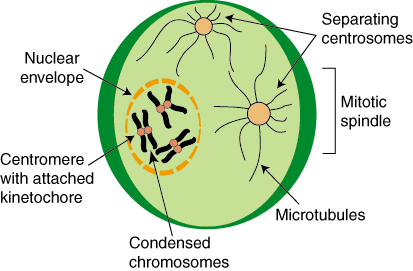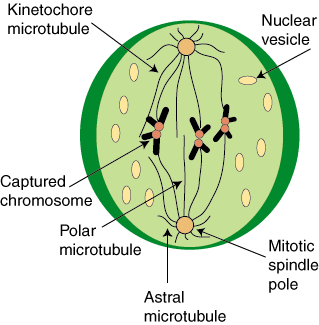Please wait while we process your payment
If you don't see it, please check your spam folder. Sometimes it can end up there.
If you don't see it, please check your spam folder. Sometimes it can end up there.
Please wait while we process your payment
Get instant, ad-free access to our grade-boosting study tools with a 7-day free trial!
Learn more



Create Account
This site is protected by reCAPTCHA and the Google Privacy Policy and Terms of Service apply.
Log into your PLUS account
Create Account
Select Plan
Payment Info
Start 7-Day Free Trial!
Select Your Plan
Monthly
$5.99
/month + tax
Annual
$29.99
/year + taxAnnual
2-49 accounts
$22.49/year + tax
50-99 accounts
$20.99/year + tax
Select Quantity
Price per seat
$29.99 $--.--
Subtotal
$-.--
Want 100 or more? Request a customized plan
Monthly
$5.99
/month + taxYou could save over 50%
by choosing an Annual Plan!

Annual
$29.99
/year + taxSAVE OVER 50%
compared to the monthly price!
| Focused-studying | ||
| PLUS Study Tools | ||
| AP® Test Prep PLUS | ||
| My PLUS Activity | ||
Annual
$22.49/month + tax
Save 25%
on 2-49 accounts
Annual
$20.99/month + tax
Save 30%
on 50-99 accounts
| Focused-studying | ||
| PLUS Study Tools | ||
| AP® Test Prep PLUS | ||
| My PLUS Activity | ||
Testimonials from SparkNotes Customers
No Fear provides access to Shakespeare for students who normally couldn’t (or wouldn’t) read his plays. It’s also a very useful tool when trying to explain Shakespeare’s wordplay!
Erika M.
I tutor high school students in a variety of subjects. Having access to the literature translations helps me to stay informed about the various assignments. Your summaries and translations are invaluable.
Kathy B.
Teaching Shakespeare to today's generation can be challenging. No Fear helps a ton with understanding the crux of the text.
Kay H.
Testimonials from SparkNotes Customers
No Fear provides access to Shakespeare for students who normally couldn’t (or wouldn’t) read his plays. It’s also a very useful tool when trying to explain Shakespeare’s wordplay!
Erika M.
I tutor high school students in a variety of subjects. Having access to the literature translations helps me to stay informed about the various assignments. Your summaries and translations are invaluable.
Kathy B.
Teaching Shakespeare to today's generation can be challenging. No Fear helps a ton with understanding the crux of the text.
Kay H.
Create Account
Select Plan
Payment Info
Start 7-Day Free Trial!
Payment Information
You will only be charged after the completion of the 7-day free trial.
If you cancel your account before the free trial is over, you will not be charged.
You will only be charged after the completion of the 7-day free trial. If you cancel your account before the free trial is over, you will not be charged.
Order Summary
Annual
7-day Free Trial
SparkNotes PLUS
$29.99 / year
Annual
Quantity
51
PLUS Group Discount
$29.99 $29.99 / seat
Tax
$0.00
SPARK25
-$1.25
25% Off
Total billed on Nov 7, 2024 after 7-day free trail
$29.99
Total billed
$0.00
Due Today
$0.00
Promo code
This is not a valid promo code
Card Details
By placing your order you agree to our terms of service and privacy policy.
By saving your payment information you allow SparkNotes to charge you for future payments in accordance with their terms.
Powered by stripe
Legal
Google pay.......



Thank You!
Your group members can use the joining link below to redeem their membership. They will be prompted to log into an existing account or to create a new account. All members under 16 will be required to obtain a parent's consent sent via link in an email.Your Child’s Free Trial Starts Now!
Thank you for completing the sign-up process. Your child’s SparkNotes PLUS login credentials are [email] and the associated password. If you have any questions, please visit our help center.Your Free Trial Starts Now!
Please wait while we process your payment

Sorry, you must enter a valid email address
By entering an email, you agree to our privacy policy.
Please wait while we process your payment

Sorry, you must enter a valid email address
By entering an email, you agree to our privacy policy.
Please wait while we process your payment

Your PLUS subscription has expired
Please wait while we process your payment
Please wait while we process your payment
Month
Day
Year
Please read our terms and privacy policy
Please wait while we process your payment

Prophase and Prometaphase
As we discussed in cell cycle, before cells are allowed to enter M phase they must meet certain cellular requirements. Among these requirements are appropriate cell size and cellular environment. Following DNA replication in S phase, cells contain twice their normal number of chromosomes. Because cells that undergo mitosis are diploid, their number of chromosomes can be represented as 2N, where N equals the number of distinct chromosomes in the cell. Cells about to enter M phase, which have passed through S phase and replicated their DNA, have 4N chromosomes. Entry into M phase is allowed by the formation of the mitotic cyclin-Cdk complex known as M phase-promoting factor that occurs as a cell cycle regulatory mechanism in the G2 phase.
The first phase of mitosis within M phase is called prophase. It follows G2, the final phase of interphase. A cell entering M phase manifests a number of physicsl signs. Among these are condensation, or thickening, of chromosomes. Chromosome condensation is visible through a microscope and is required for subsequent chromosome separation during later stages of mitosis. Another physical characteristic of cells beginning mitosis is the sprouting of microtubules from replicated centrosomes. Microtubles are protein filaments on which chromosomes migrate during mitosis.

As we discussed, prophase is marked by very thick and dense chromosomes. At this phase, the chromosomes are still enclosed in the cell nucleus within the nuclear envelope. The chromosomes also contain a centromere, which is necessary in later phases for attachment to microtubules for migration. Late in prophase, kinetochores assemble on the centromeres. Specialized microtubules, called kinetochore microtubules later attach to these sites. Duplicated centrosomes, which are the organizing centers of microtubules, begin to separate towards opposite poles of the cell. The network of cytoskeletal components begins to break down and the mitotic spindle forms. The mitotic spindle is an arrangement of microtubules that is responsible for aligning duplicated chromosomes in later phases.

The major event marking a cell's entry to prometaphase is the breakdown of the nuclear envelope into small vesicles. Kinetochores also become fully matured on the centromeres of the chromosomes. The disruption of the nuclear envelope allows for the mitotic spindles to gain access to the mature kinetochores. As the microtubles of the mitotic spindle enter the nuclear region, some attach to the kinetochores making them kinetochore microtubules. The remaining microtubules are called non-kinetochore microtubules. Sister chromatids are captured by microtubules stemming from centrosomes on opposite ends of the cell. Once they have captured chromosomes, the kinetochore mictrotubles begin to exert force on the chromosomes, moving them.
Please wait while we process your payment





